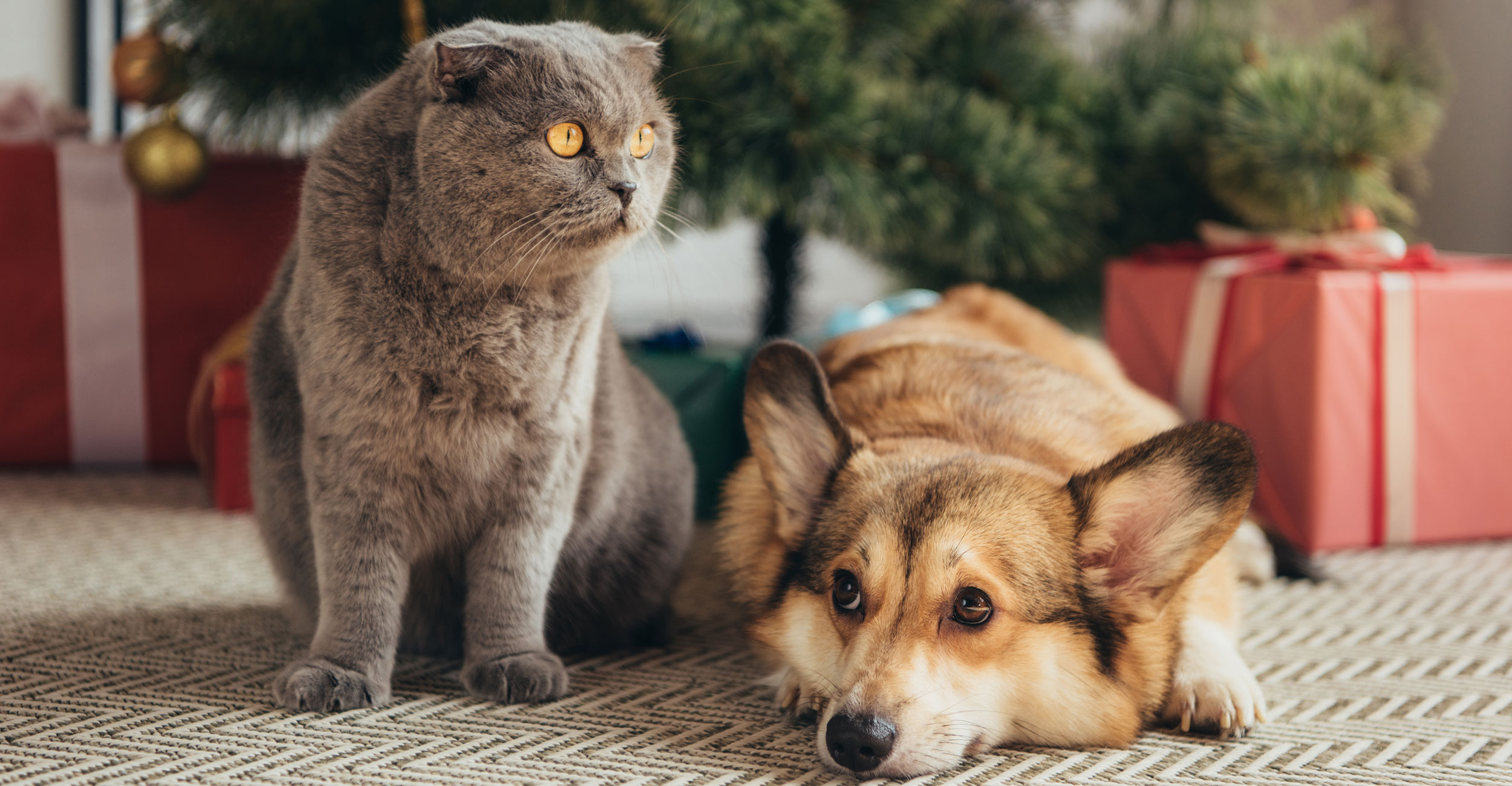
Veterinary Viewpoints: Holiday Pet Safety
Thursday, December 1, 2022
Media Contact: Kaylie Wehr | Coordinator, Marketing and Public Relations | 405-744-6740 | kaylie.wehr@okstate.edu
The holiday season brings many fun traditions to share with the ones we love, including our pets. While we enjoy the decorations, food and time spent together, it is important to also keep safety in mind for your pets.
Let’s Eat
Food is one of the biggest ways in which we celebrate the holidays, but you might wonder — can I share with my pets? While it’s best to avoid table food altogether, there are certain foods that pose a higher risk when consumed by pets.
- Fatty foods such as cheese, turkey skin and gravy are hard for pets to digest and
can cause inflammation in the pancreas (pancreatitis). Vomiting and diarrhea are common
signs.
- Onions and garlic are toxic to blood cells and can make pets sick.
- Bones can cause intestinal blockage.
- Chocolate is toxic; it contains theobromine and caffeine, which can cause arrhythmias
and seizures. Chocolate is the most common food intoxication during the holidays.
- Grapes/raisins are extremely toxic and will cause kidney failure and liver disease.
Most people are not aware of this danger.
- Yeasty doughs, especially uncooked batter, will expand in the stomach and cause bloating.
In extreme cases, depending on the amount ingested, it can even rupture the stomach
if not addressed quickly. If absorbed, fermentation can produce alcohol which can
be absorbed, as well.
- Xylitol or any artificial sweetener will cause liver damage, low blood glucose and seizures. This is a very serious food intoxication and pets need to be taken to the emergency room immediately if ingestion occurs.
Deck the Halls
Decorating is another popular part of holiday celebrations. Be aware of any decoration involving strings or small pieces, as they are dangerous if ingested. Cats are attracted to strings and may swallow them, causing a linear foreign body. Dogs may swallow small lights or ornaments and have an obstruction. Wired lights also pose a risk, as they can electrocute a pet if chewed on. Keep them unplugged during the night or when not supervised.
Traveling for the Holidays
When traveling for the holidays, be sure to have plans in place for your pet(s), whether that means taking them with you or boarding them. If you are taking them along, but have never traveled with your pet, make sure to take a short test ride beforehand. Plan ahead and talk to your vet about safe anti-anxiety medications that can be used the night before and the morning of — some pets get car sick or have anxiety.
If you are leaving pets at home, get a pet sitter to stay with them preferably, or have someone come by at least twice a day to check on them. If you choose to board your pet, OSU’s Cohn Pet Care Facility can help. Whether you're traveling long distances or just heading out for the day, eliminate some holiday stress and leave your pet in good hands at the Cohn Pet Care Facility. More information on the Cohn can be found at okla.st/3Rf1RPa.
Getting Together
Having guests over is stressful for most pets, as it disrupts their routine. Anxious pets may bite guests, especially children. Make sure your pet can handle being in the presence of other people, and if not, keep it in a separate room. Talk to your veterinarian about situational anxiety drugs that can be given for a day or two during the holidays as needed.
With a little planning ahead, both you and your pets can enjoy holiday festivities. The OSU College of Veterinary Medicine wishes you a safe and happy holiday season!
About the author: Dr. Leticia Fanucchi is a clinical assistant professor in the Department of Veterinary Clinical Sciences at Oklahoma State University’s College of Veterinary Medicine. She is the head of the behavior service at the OSU College of Veterinary Medicine’s Teaching Hospital. Her research interests are applied behavior and animal well-being.
Veterinary Viewpoints is provided by the faculty of the OSU Veterinary Medical Teaching Hospital. Certified by the American Animal Hospital Association, the hospital is open to the public providing routine and specialized care for all species, as well as emergency care. Call 405-744-7000 for an appointment or see more information at vetmed.okstate.edu.
OSU’s College of Veterinary Medicine is one of 33 accredited veterinary colleges in the United States and the only veterinary college in Oklahoma. Established in 1948, the CVM is dedicated to the education and development of skilled veterinarians who are committed to the protection of human and animal health.
